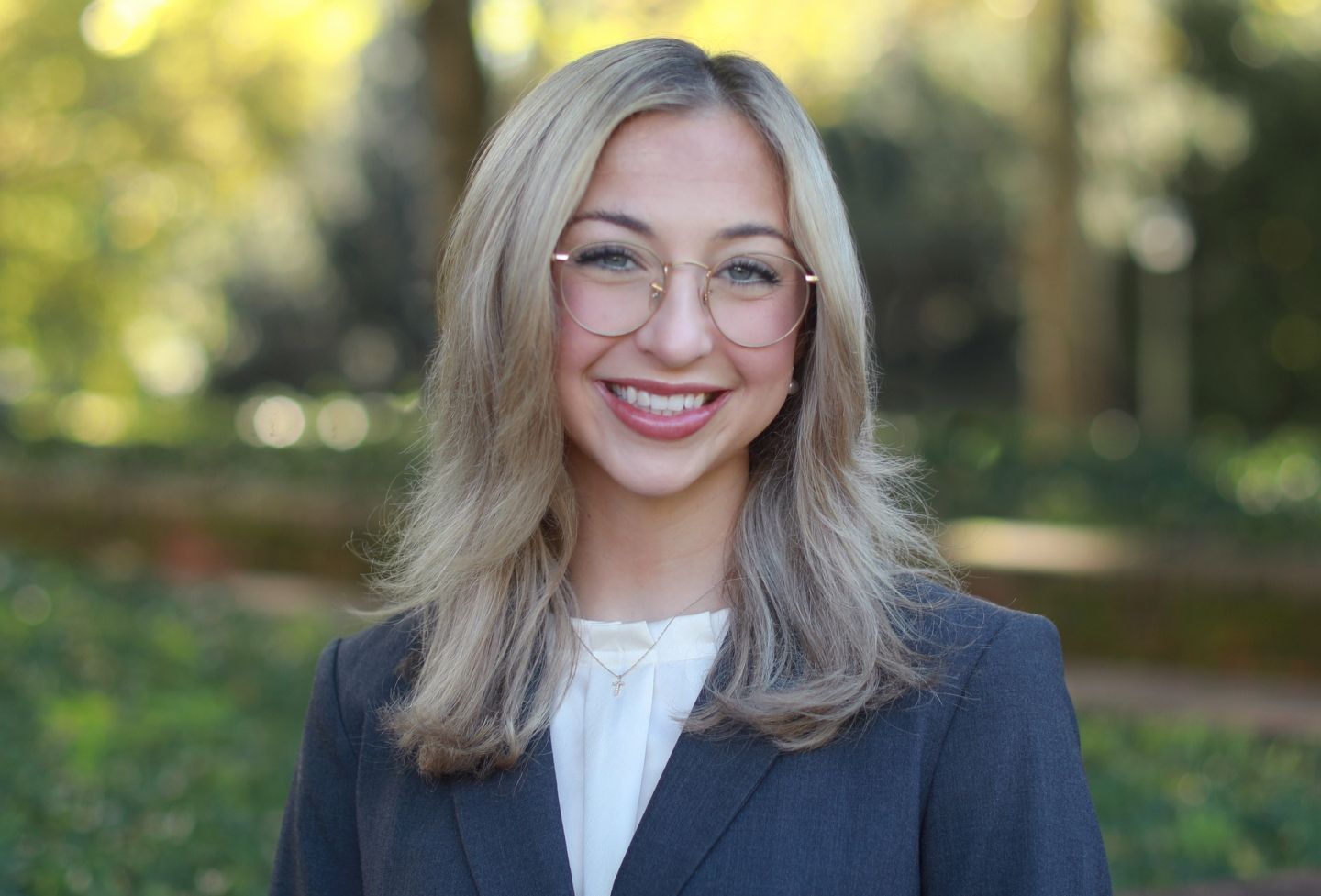Update: This “Star Witness” was completed before the school moved to online teaching.
As an undergraduate at Gallaudet University, Jehanne McCullough was concerned that Americans whose primary language is American Sign Language (ASL) wouldn’t get an important message. So, while interning for the Hillary for America campaign, she brainstormed the idea to set up an ASL video hotline.
Now a second-year law student at UVA, McCullough hopes to continue her advocacy for the underserved through a career in law. She is currently online editor of the Virginia Law Review and a Peer Advisor. She communicates in person using ASL and UVA-provided interpreters.
McCullough has also interned at the U.S. Department of Justice, for U.S. Rep. Mark Takano and at the National Association of the Deaf. The North Bethesda, Maryland, native graduated with a bachelor’s in government from Gallaudet, where she served as student government president.
In our occasional series “Star Witness,” McCullough discussed by email her time as a campaign intern and a leader at Gallaudet, and her path to law school.
Tell us something about your life before law school.
I went straight through to law school from undergraduate. One of the most meaningful experiences I had during my undergraduate years was when I spent a semester interning for the Hillary for America campaign at the national headquarters in Brooklyn, New York.
In addition to doing research and outreach projects with different departments of the campaign, I set up the first-ever nationwide American Sign Language voter assistance videophone hotline. I came up with the idea when I was working in the voter protection department and learned that the campaign was launching a 24-hour Spanish voter assistance hotline available by text and phone. The purpose was to make the campaign’s assistance more accessible to a larger number of Americans. As a Deaf individual who primarily uses ASL, I wanted to ensure access to voter information for people who use ASL. (I capitalize Deaf in recognition of Deaf people having a cultural and linguistic identity, as opposed to using the lowercase deaf, which connotes a pathological or medical view.) I was fortunate to receive support from the campaign and the Democratic National Committee to make the ASL hotline happen. After the internship ended, I conducted post-election research on Deaf nonvoters, as part of my honors capstone. My goal was to better understand how voting can be made more accessible for Deaf Americans, and in turn, increase their turnout. I also wanted to offer some guidance for future political outreach.
Why law school?
I have wanted to go to law school since I was in high school, as I always have loved advocating on behalf of other people. I sensed law was the inevitable path for me, but not until my time with Hillary’s campaign did I know for sure that law school was right for me. Seeing the role of the law in voter protection, which also helped me understand the impact of the law generally, sealed the deal for me.
Tell us about your time as president of the student body government at Gallaudet.
Representing undergraduate students as student body government president was a remarkable experience that allowed me to grow tremendously. I oversaw all student governance operations while simultaneously handling the organization’s $100,000 budget and serving as chief student liaison to university administration committees.
Working with many different entities, including the student body, student organizations and clubs, faculty, administration and the university board of trustees, allowed me to develop more effective mediation skills. It also gave me a deeper understanding of how each competing view plays into the issue and what is actually at stake. Shaped by this experience, the first thing that comes to my mind when I approach a new issue is how different groups of people or entities may view it.
What’s something your classmates don’t know about you?
As a Deaf person who uses American Sign Language, law school is actually the first time I have utilized interpreters in an educational institution. Up until I arrived at UVA Law, I had always attended bilingual schools specifically geared toward students who are Deaf and who use ASL. I grew up attending the Maryland School for the Deaf, then elected to go to Gallaudet University, in Washington, D.C., which is the only university in the world that is specifically designed for Deaf people. I chose to go to Gallaudet because I anticipated going to law school and knew I wanted to take advantage of my last opportunity to continue my education in a place where my native language is used by everyone, from my classmates and roommates to my professors and the university president. Although I have worked in hearing-centered environments, including the U.S. Congress and the U.S. Department of Justice, law school has been my first 24/7 educational experience away from the Deaf community. I have been extremely fortunate in that I have a wonderful team of interpreters, supportive professors and amazing classmates. Because of them, my experience here has exceeded my expectations.
On the fun side, my family has rescued three former racing greyhounds. When they first arrived from the racetrack, where they had lived in crates their entire lives, they were the sweetest puppies in adult bodies who had to learn how to master stairs and play with toys. I hope to adopt my own greyhound one day!
What’s next for you?
This summer I will be working as a summer associate for Akin Gump Strauss Hauer & Feld in Washington, D.C. I am excited to take this next step in my career.
Founded in 1819, the University of Virginia School of Law is the second-oldest continuously operating law school in the nation. Consistently ranked among the top law schools, Virginia is a world-renowned training ground for distinguished lawyers and public servants, instilling in them a commitment to leadership, integrity and community service.


